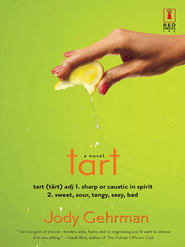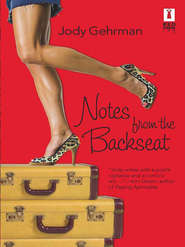По всем вопросам обращайтесь на: info@litportal.ru
(©) 2003-2024.
✖
Summer in the Land of Skin
Автор
Год написания книги
2018
Настройки чтения
Размер шрифта
Высота строк
Поля
I keep walking.
The absurdity of this mission is all too clear to me. I am several states from anyone I know, homeless, jobless, sporting a haircut that only this morning was glamorous but now is a ridiculous anachronism—I’m a flapper lost in space. Bender is a hopeless drunk, and my plan to apprentice with him is a farce. Yesterday morning, Rosie was a radiant goddess in go-go boots, launching me into my destiny. Tonight, she is revealed as a bored divorcée, tinkering with my life to escape her own.
My pace increases. I can’t remember where I left the truck. I walk and walk, as if the feel of the concrete under my shoes will keep me from floating away, balloonlike, into the sky.
Rounding a corner, I hear a few strains of slide guitar. It’s a song I used to know. The sun is finally down, and I can feel a chill trying to seep through my T-shirt to my skin, but my legs keep moving, pumping heat into the rest of me. Oh, sweet mama, your daddy’s got those Deep Ellum blues. I move in the direction of that voice, that guitar. I figure it must be coming from a bar somewhere, but I’m lost in a neighborhood quite a few blocks from downtown. I’m surrounded by trees and rows of old houses, some elegant, some abused and graying. The flowers that line their stone paths and white fences are bathed in a fiery light. The street sign says Walnut.
Without warning, there he is, leaning back in a weather-rotted easy chair, his feet propped up on the porch railing. His hair is long and brown and falls below his shoulders. A cigarette dangles from his lips, the orange tip glowing, and he works that guitar with his head swaying easy, his fingers gliding. His voice is a low, mournful growl, and it is so much like my father’s that I stop walking and stare, the chill spreading through me. Oh, sweet mama, your daddy’s got—
“Hey, baby?” a woman’s voice cries from a window upstairs.
He stops playing, examines his fingers. “Yeah?”
“We need cigarettes!”
“Can you wait a minute?” He starts in on the chorus again.
A head pops out of the window—dark hair, naked shoulders. “The question is not, ‘Can I wait?’” she says. “The question is, ‘Can you get your lazy ass downtown and get me smokes, or do I have to do everything myself?’”
He chuckles, shakes his head. “I hear that,” he says, and flings his cigarette onto the lawn, where it smolders in the grass. The head disappears from the window.
The man stands, gripping his guitar by the neck; he looks out at the orange smear of clouds on the horizon. His cheekbones are high and sharp, his eyes dark. He takes the metal slide from his finger and shoves it into the pocket of his jeans. As he turns to go inside, he catches me staring at him from the sidewalk.
I drop my eyes and start walking again, past their yard, across the street, and I do not look up again until I hear the door slam.
The temptation to get mystical is ever-present. This is all I’m going to say: after I hear that door bang shut, I look up, and the first thing I see is a sign in the third-story window across the street: Room For Rent. Before I know what I’m doing, my legs are marching me up the steps, and I’m ringing the bell, reading the words painted on the glass in neutral white lettering: Dr. Andrew Gottlieb, D.D.S., Painless Dentistry Guaranteed.
I glance at my watch and see that it’s a little past eight. Too late for a dentist’s office to be open. Still, something keeps me on this olive-green porch, swept to perfection. This building stands in sharp contrast to the others on the corner. There’s a faded blue place across the street, once grand, no doubt, now dirty and somehow institutional; kitty-corner is an even more neglected house, with a yellow paint job that’s peeled down to a white undercoat in huge patches, giving it the mottled look of a fried egg. The depressing effect is heightened by several broken windows. A couple of kids in dreadlocks are tinkering under the hood of a rusted van in the driveway. On the east corner is the house the guitar man disappeared into; it is a pale pink, three stories high, with a turret at the top. Like the others, it must have been stately once, though now it looks weather-beaten, and the porch is strewn with several rotting chairs.
Dusk is starting to settle in, and I feel a pang of longing for a dark room and my binoculars.
“Looking for me?”
I spin around. A man is standing there in the doorway, bare-chested, wearing tight cutoffs.
“I saw a sign,” I blurt out.
“A sign?” He has a droopy black mustache that bobs as he speaks.
“In the window. You have a room for rent?”
“Ha! It’s been up there so long, I forgot.” He scratches his hairy chest. He looks like the guys that used to hang out at the roller-skating rink when I was a kid—feathered hair, desperate eyes. “You new to town?”
I nod.
“From where?”
“San Francisco.”
“I have a cousin there—a vegetarian. I told him, our teeth are built for meat. He won’t listen, though, crazy bastard.” He tilts his head to one side, sticks a finger in his ear and wriggles it wildly for a moment. “Come on in,” he tells me. “Room’s upstairs.”
I follow him through the lobby, where the walls are lined with strange, vaguely erotic photos of mouths. We pass a couple of rooms with dentist chairs, another with a sink and several rows of disembodied, pink-gummed dentures, their white teeth glowing in the dwindling light.
As we climb the stairs, he says, “It’s a nice room. Very feminine. My ex-wife decorated it. I’ve got a little office downstairs with a couch and a shower—sometimes I sleep overnight, but not often. Here we are!” At the top of the stairs, he flings open a door, revealing a tiny, cramped room with an orange shag carpet and a large bed covered in a pink and green plaid bedspread. There’s a sink and hot plate in the corner, a dwarf-sized refrigerator next to that. The wallpaper has a disturbing milkmaid motif: a Nordic girl in blond braids with huge breasts works cheerfully at various farmyard tasks. “You can use the toilet and shower downstairs, in my office,” he offers, interrupting my moment of hypnosis before the rows of milkmaids. “Like I said, I’m hardly ever there.”
“Right,” I say, blinking.
“You’ve got nice teeth,” he tells me. “Orthodontics?”
“No. Genetics.”
He laughs. I look away quickly, my eyes moving automatically to a milkmaid bending over the butter churn. The room reeks of a sickly sweet air freshener—peach, I think. I’m about to murmur something polite and bolt for the door when the little window by the bed catches my eye. I cross the room and pull the frilly curtain aside. Across the street, I see the long-haired guitar man, framed in a large bay window, smoking a cigarette in a white T-shirt.
“How much?” I ask, not turning around.
By my third night in the god-awful milkmaid room, I’m thoroughly familiar with the Land of Skin. That’s what I decide to call this corner—the place where Walnut and Garden cross—because every time there’s a ray of sunlight, however tenuous or cloud-filtered, everyone strips down to the bare minimum, and the whole corner comes alive with half-naked natives. To a girl from California, it’s a little overwhelming to see such an abundance of bone-white bodies. I am fascinated by their obscenely pale thighs, their shining, colorless chests.
I have the whole neighborhood mapped out and labeled. I’ve determined that the blue place is a halfway house, which I’ve named Purgatory Corner. Across from that is Goat Kid Hovel. The pink house where Guitar Man lives is an old Victorian that’s been converted into apartments. The tenants there all smoke out the windows, and on the shared porch, so I’ve named this place Smoke Palace. I sketch the area in a notebook and label each house neatly.
Tonight Goat Kid Hovel is swarming with activity; every ten minutes a new pack of young, tattered white kids in dreadlocks or shaved heads pull up in beater cars. Loud, discordant music rattles the broken windows, each song crackling with the static of a stereo pushed beyond its limits. A couple of potbellied men sit out on the porch of Purgatory Corner drinking from soda cans. Every now and then, one yells, “Turn that shit down!” But the kids only laugh, rev their engines, and shake their matted hair like gleeful little beasts.
By midnight things have quieted down, but I still linger near the window, my mind racing. Every once in a while I can hear someone laughing from inside Smoke Palace; later, a nocturnal argument erupts, but it’s hard to tell where exactly it’s coming from. These are the hours when my thoughts drift back to the subject of suicide: why people do it, what it feels like the moment you slice open your wrists or pull the trigger. Are there doubts, like pacing the high dive and seeing the nauseating spill of distance below you? Or is it lucid, light, with freedom so close you can taste it, like right before an orgasm?
When I was fifteen, I started filling sketchbooks with drawings and notes I secretly named my Suicide Maps. I would make up fictional characters and plot their self-imposed deaths; I documented the whole process with an investigator’s eye for detail. But even more intricate were the maps of their postmortem experiences, loosely inspired by my favorite old tome, Afterlife Mythologies. I took perverse pleasure in rerouting my subjects to unexpected locales: Catholic priests might find themselves in Nirvana; a Mormon housewife could awake in Valhalla. Suicide was just the first step in an intricate journey toward more and more outlandish planes of existence. Their deaths were my fairy tales, my science fiction.
My mother must have found that stack of sketchbooks. One day I went to add a new entry and they were gone. I knew better than to ask. My obsession was an embarrassment to us both, something that could not be mentioned, like masturbation. Still, it didn’t stop me from making new ones.
Tonight I’m working on an entry for Raggedy Ann at the Goat Kid Hovel—a tall, gawky girl of around sixteen, with a head of hair that looks like it’s on fire. Sometimes I squint and imagine she is an animated matchstick. She wears striped socks and a heavy, oversized trench coat, even when everyone else is nearly naked. I think she might be deaf; she never reacts to the people around her, and nobody bothers to address her directly. She’s definitely the sort to hang herself in some dirty, grease-scented garage. I sketch her dangling from rafters, her orange hair hanging limply over her face. I map out the afterworlds she’ll escape to: a brief stop in Hades, followed by a journey to the core of the earth. Here she’s reborn with the smooth, deeply sad voice of a blues singer. I show her singing to a pool of lava, surrounded by enormous insects; a fiery glow bathes her face and hair.
Around two a.m., Guitar Man appears on the porch wearing boxer shorts and a loose cotton tank top. He sits in one of the rotting chairs and starts to play his old Gibson. I can feel my palms sweating as I put down my notebook and train my binoculars on his neck, studying the soft brown skin where it disappears into the white of his shirt, then reappears in the round curves of his strong shoulders. Whenever I see him, I start to sweat. It’s not just that he’s beautiful—and he is beautiful, with his sinewy arms and his long, dark hair—where did he get his tan? His body is made of sandalwood, and all around him the people are birch—it’s that he is so inexplicably alone. His eyes search the air, his arms and legs unnaturally still, like a Bodhisattva. Even when his girlfriend is perched in his lap like a languorous cat, his eyes say he’s far away, lost in some tremendously difficult equation.
I turn to a new page in my notebook and try to sense how he would do it: .38 special in the mouth? Pills? But my attention is consumed by his hands; I watch as they move gracefully up and down the neck. Through the binoculars, I can see how tired and sad his face is, pinched with worry and concentration. I only wish he would play louder, so I could hear what his fingers are doing to those strings.
Thursday, I am startled from my afternoon observations by a knock on my door. Gottlieb is in my room before I even have time to stash my binoculars.
“What are you doing?” he asks, nodding at the binoculars and notebook.
“Zoology.” I blush wildly, even though he doesn’t seem accusing. “I’m a—bird-watcher.”
He doesn’t ask any more questions; I can see there’s something else on his mind.
“I want to show you my work,” he blurts out. I think of the haunting rows of pink-gummed molds downstairs, but instead he pulls a piece of paper from his pocket and sits down next to me on the bed. He’s wearing tight jeans and an argyle sweater; he looks nervous, like a kid at his first piano recital. “You seem like the artistic type,” he says shyly. Then he reads from the page, his hand trembling slightly; the smell of cheap cologne and soap fill my head. “‘Your heart is a stone, your eyes glitter like glass shards, I wish you were dead.’” He looks at me expectantly. “It’s a haiku.”
“Oh. Interesting…”
“Here, let me read you this one—it’s better. ‘Fingernails like knives, mouth like a red bleeding wound, stay away from me.’” I sit there a moment in stunned silence, taking this in. “I’m working on a collection,” he says. I stand, and lean against the opposite wall, near the door. “I’ve got a hundred and twenty-four of these. The working title is Ex-Wife.”
“That’s great,” I say, my voice thin and insincere. “I mean, good for you.”








